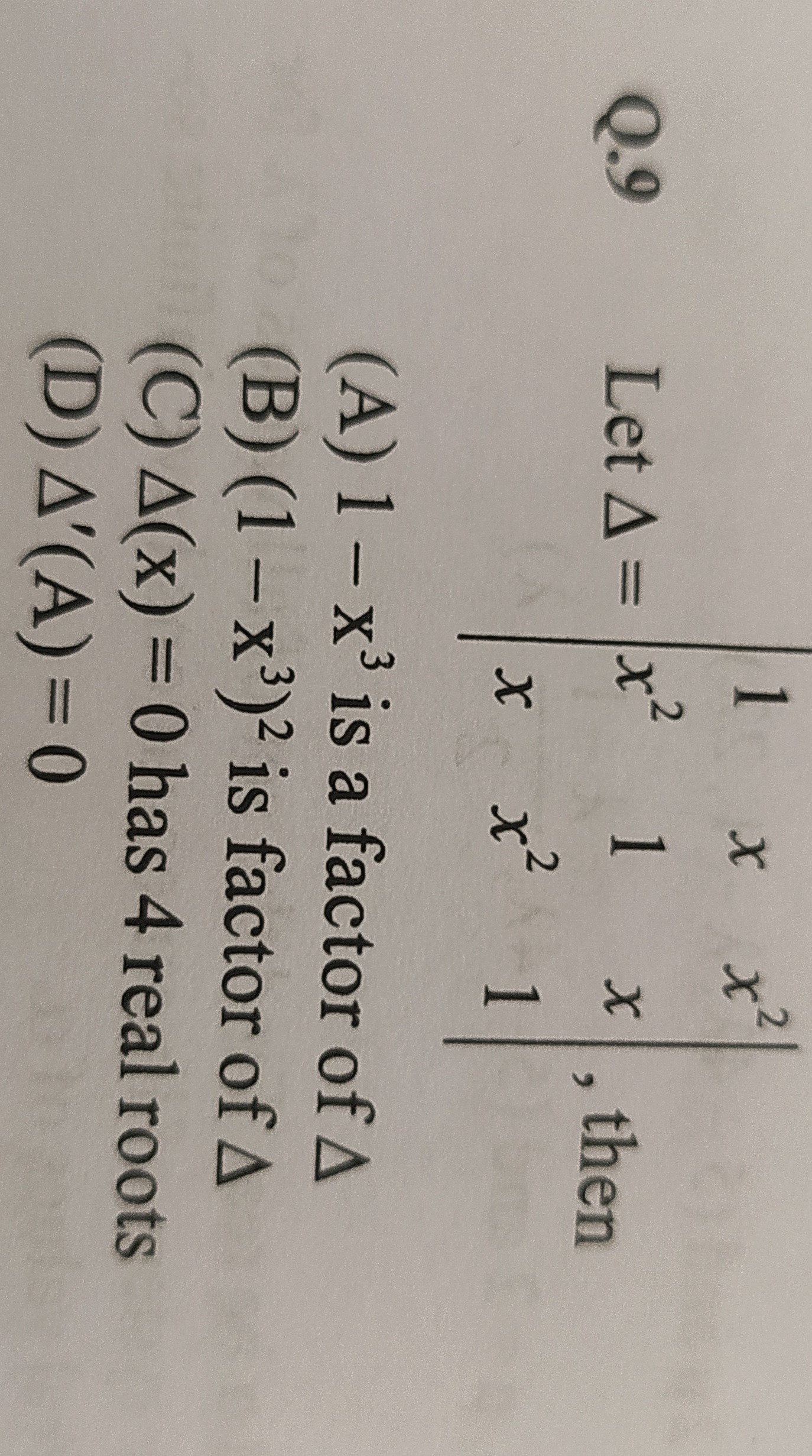Question
Question: Let $\Delta = \begin{vmatrix} 1 & x & x^2 \\ x^2 & 1 & x \\ x & x^2 & 1 \end{vmatrix}$, then...
Let Δ=1x2xx1x2x2x1, then

A
1 - x³ is a factor of Δ
B
(1 - x³)² is factor of Δ
C
Δ(x) = 0 has 4 real roots
D
Δ'(A) = 0
Answer
Options (A), (B), and (D)
Explanation
Solution
We are given
Δ=1x2xx1x2x2x1.Expanding using the formula for a 3×3 determinant,
Δ=11x2x1−xx2xx1+x2x2x1x2.Compute each 2×2 determinant:
- First: 1x2x1=1⋅1−x⋅x2=1−x3.
- Second: x2xx1=x2⋅1−x⋅x=x2−x2=0.
- Third: x2x1x2=x2⋅x2−1⋅x=x4−x.
Thus,
Δ=1⋅(1−x3)−x⋅0+x2(x4−x)=1−x3+x6−x3=x6−2x3+1.Notice that
x6−2x3+1=(x3−1)2=(1−x3)2.Checking the options:
(A) Since Δ=(1−x3)2, clearly 1−x3 is a factor. ✓
(B) (1−x3)2 is exactly Δ, so it is a factor. ✓
(C) The equation Δ(x)=0 leads to (1−x3)2=0⟹x3=1, whose roots are x=1,2−1±i3 (only one real root). So 4 real roots is false. ✗
(D) For a repeated (double) root at any x satisfying x3=1, the derivative vanishes. In particular, at the real root x=1,
Δ′(x)=dxd[(1−x3)2]=2(1−x3)(−3x2)=−6x2(1−x3),and Δ′(1)=−6(1)(0)=0. ✓
